Rodell Warner's art of colouring the past
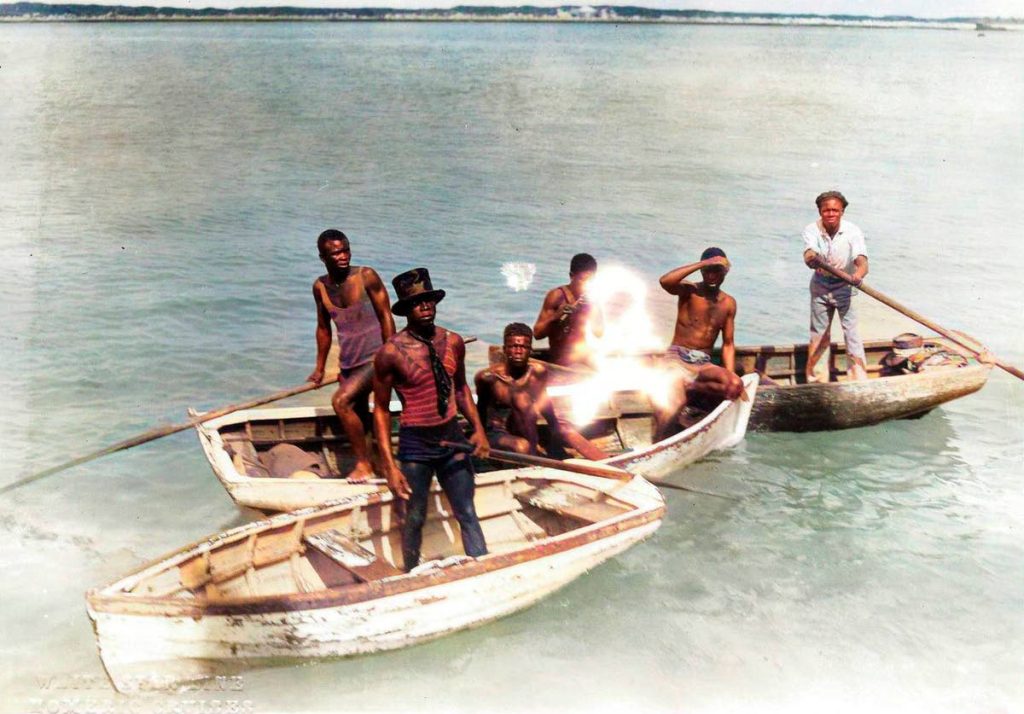
Trinidad and Tobago artist Rodell Warner is colouring the past. His Augmented Archives will be shown in an exhibition at TERN Gallery, Nassau, Bahamas, hopefully in late March.
Warner, who is originally from Belmont, Port of Spain, is known primarily for his work in new media and photography.
A media release on the upcoming exhibition says it "dares to revive the past." The exhibition features a series of digitally-augmented 20th-century photographs and "further explores his ongoing investigation of Caribbean archives," it said.
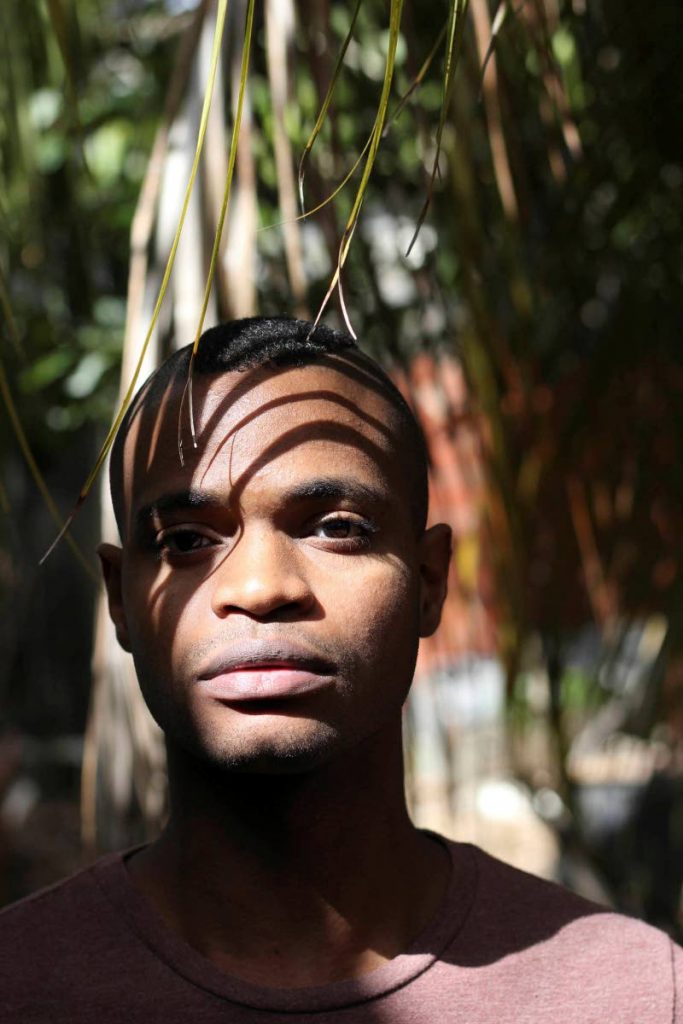
The exhibition includes three different bodies of work spanning the past five years of Warner's practice, as well as a limited edition of video prints. It combines digital animations and sound, and the video shows colourised and digitised representations of mainly black-and-white photos – with many appearing in colour for the first time.
Warner's works have been exhibited at The Whitney Museum of American Art in the 2016 Dreamlands exhibition as part of the collective video project Ways of Something; The National Gallery of Jamaica in the 2016 exhibition Digital, and at the tenth Berlin Biennale in 2018 in I’m Not Who You Think I’m Not #14.
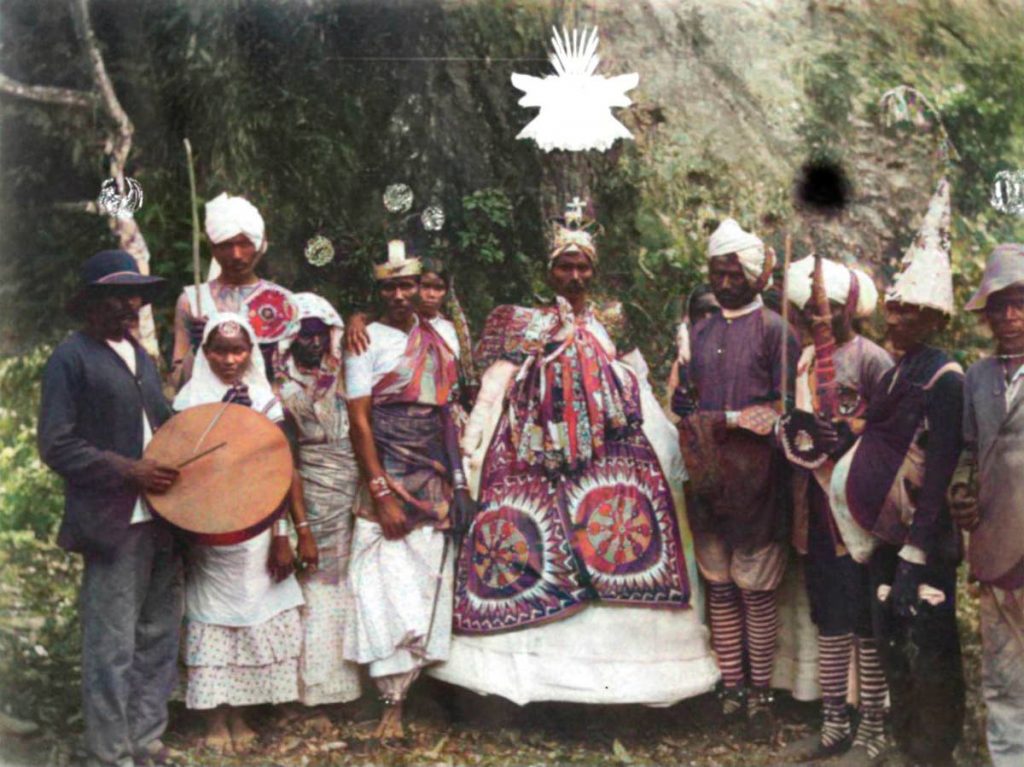
He is the recipient of the 2011 Commonwealth Connections International Arts Residency, and the 2014 summer residency at NLS Kingston. He was commissioned in 2017 to create the Davidoff Art Edition, a series of five artworks printed onto a limited edition of 5,000 boxes of luxury cigars and presented and sold at Art Basel in Hong Kong, Miami, and Basel. His work has also been exhibited at Alice Yard, Roberts Street, Woodbrook, and at Medulla Gallery, Fitt Street in Woodbrook.
Referring to a black-and-white image of people in a boat in 1930s Bahamas, Warner said in a phone interview with Newsday that particular picture was interesting because, in the original version there was a part of the picture with a handwritten caption which read, “Diving for coins, Nassau, Bahamas.”
“So this image of these men on this boat, in the records, in the archives, is recorded as an image of men performing tricks for tourists,” he said.
Often when Warner comes across archival images, they are framed within this type of context.
“It is people with their donkeys and their carts in the field with their tools. It is this record of colonial life,” he said.
Warner said in the original form, what is recorded is not the individual but rather the work or service that was performed by the individual, he said. He does not know the people but his intention is to change the image's focal point by actually focusing on them, attempting to give life, a name and a face to the people captured in these archival images.
“And what we know about them is where they are and what time they are in. And I am making things that invite the viewer to imagine more about the lives of the people."
Warner colourises the photos using a network of computers that have been trained by millions of images to recognise different objects and people.
“You feed it a black-and-white image and it can identify if this is a person, this a tree, this is water and it will apply colours that it observed in all of the images it had embedded before, all of the millions of images that the algorithm of it has been trained on. It basically recognises what is in the picture and applies estimates and colours.”
Warner wants his work to be an “invitation to imagination,” to have people imagine what the lives of these people were like. He also wants to change people’s perspective on archival images in its entirety.
His use of AI (artificial intelligence) is a natural progression of how he came into making visual art. He did photography first and then began working professionally as someone who “manipulates, edits and creates digital images." Warner does not have formal training in art but has worked in the visual art for more than decade.
“A kind of natural trajectory for me involved playing with photography and archival imagery and manipulating the imagery to create something new.”
He said the use of technology is incidental and “it was just the tools of the day.” His intent is not to involve technology or to use new tools but rather to change how people see the images, and the tools he uses happens to be digital technologies.
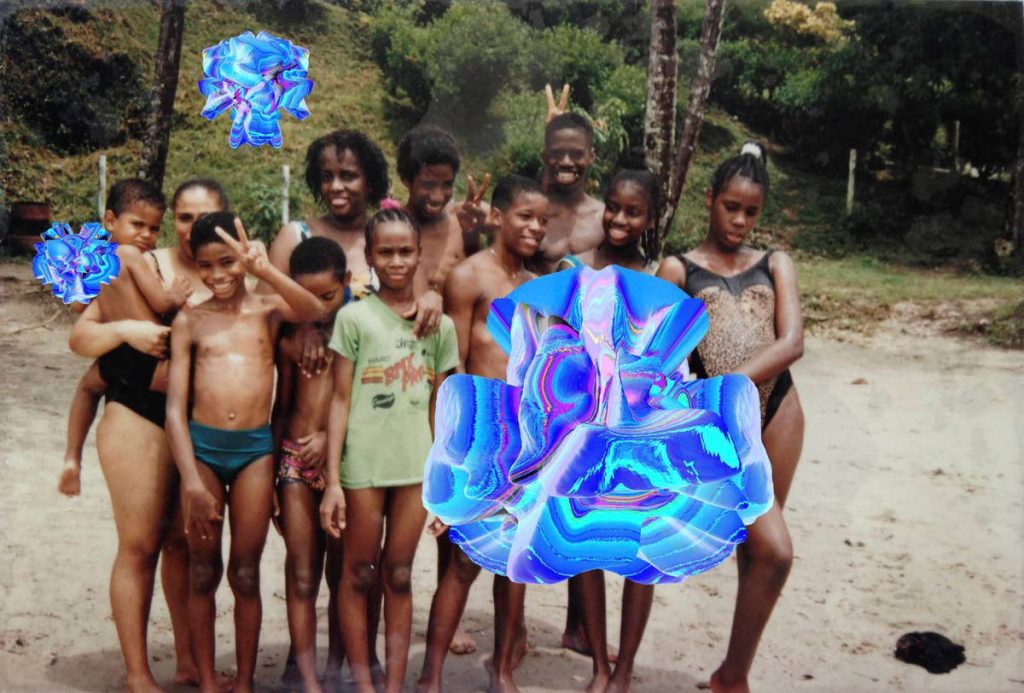
He recently moved to Austin, Texas, with his wife, Nicole Smythe-Johnson, a curator and art historian, and was concerned with his connection to the Caribbean, and “not wanting to fall out of conversation with the arts community I am very much embedded in and a part of, and enjoy being a part of.”
It is the first time he has lived outside the Caribbean for an extended period. So he wanted to make something that allowed him to remain in contact with his community in the Caribbean.
“The thing about making art is you get to choose what you make, and what you choose to make determines what people are going to talk about and ask you about and the kind of conversations you are going to generate.”
Having access to archives from all over the world, he deliberately chose to work with images from the Caribbean to have the ongoing conversation about “ourselves and our neighbours.”
So when TERN contacted him in mid-2020 and asked to curate an exhibition of his digital works, he agreed and recommended showing his Augmented Archives along with other works.
TERN's founding director Lauren Holowesko and its gallery manager Jodi Minnis said Warner was chosen because they wanted to set a precedent for representing work from the wider Caribbean and a medium that they feel is under-represented – video/digital art.
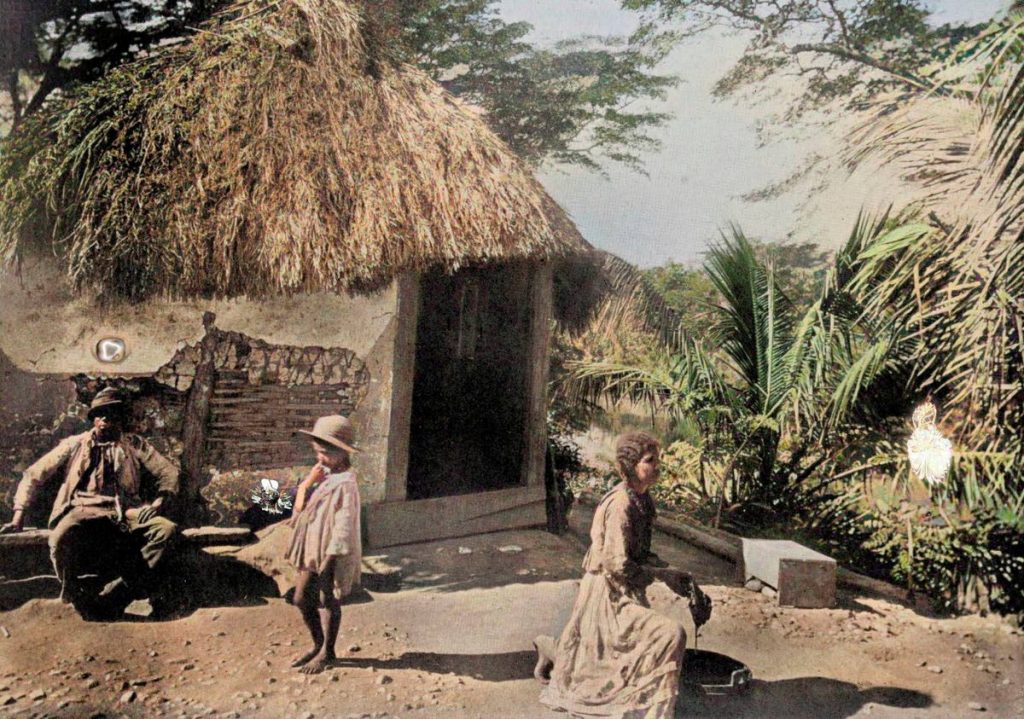
"TERN is committed to a more contemporary vision of the region and Rodell's work could not align more perfectly with our mission in unveiling historical biases and stereotypes of the people and land and opening the door to more global conversations and representation," they said.
He first did this kind of work in 2014 and has been applying the same treatment to different archives since then. His Family and Friends archives were done in 2017 and the Augmented Archives began in 2019. A lot of the images used are in the public domain, he added.
He shares his images on social media.
“We are always sending each other images. Sharing things in our stories and things like that. It is that I am putting something in a public space that we can talk about or people can talk about, or share, or be influenced by, or be critical of, or engage with.
“What I hope can be taken away from it is just the realisation that these records of the people that came before us are people that we are connected to. They are real people who made decisions about the world and their lives that affected us and continue to affect us.”
When Warner engages with a picture from another Caribbean island of 100 years ago, he does not know where the offspring of these people went.
“What I do know is that the whole of the Caribbean is connected by this shared history and we are not separate in time and experience from these moments that are captured here.
“These are the grandparents, and great-grandparents and great-great-grandparents of the people that we work with and share things with online and this is our history. The takeaway for me is just as we are connected to each other and we are connected to these people and we are just looking, together, at our history. Our family history.”

Comments
"Rodell Warner’s art of colouring the past"